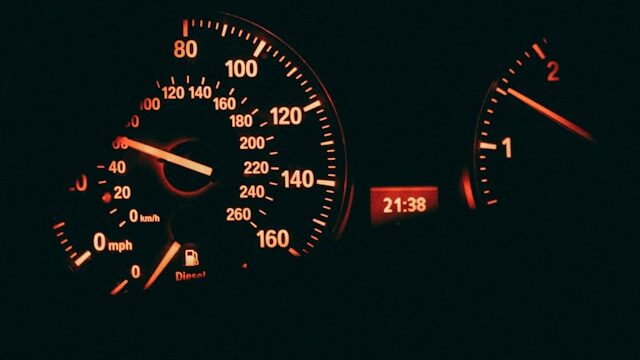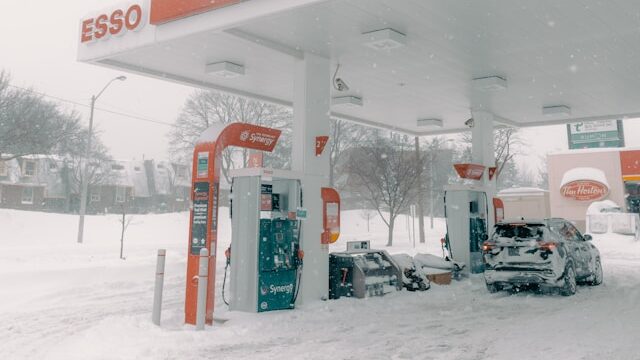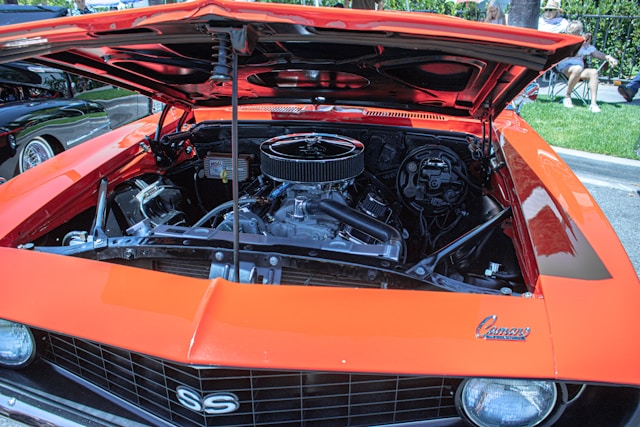
Every car owner aims to keep their vehicle in pristine condition, regularly cleaning the interior and exterior and maintaining a clutter-free space. However, as time passes, it’s easy to become complacent and neglect essential maintenance tasks. Given the significant investment in a car, it’s crucial to maximize its lifespan and performance through proper care.
In this guide, we’ll share valuable maintenance tips to help you prolong your car’s life and prevent minor issues from escalating into major problems.
Why maintenance matters
Before we delve into specific maintenance tips, it’s crucial to emphasize the importance of regular car care.
It saves you money
Regular car maintenance is crucial for extending your vehicle’s lifespan and minimizing costly repairs. By addressing issues early on, you can prevent them from escalating and save significant expenses in the long run.
It keeps you safe
While the financial advantages of maintaining your car are undeniable, prioritizing road safety should be the primary concern. Neglecting car maintenance, such as ignoring a faulty clutch pedal or worn-out brakes, can significantly increase the risk of accidents.
Helps performance
Regularly used vehicles naturally experience wear and tear over time. While performance may gradually decline, proper maintenance can significantly extend the lifespan of your car.
Increases appeal value
Many people are hesitant to purchase used cars due to the potential for hidden issues. By maintaining your vehicle in excellent condition, you can increase its resale value and attract more potential buyers.
Now, let’s explore some essential car maintenance tips from RD2SuccessFastTrack.
Keep it clean

Let’s start with a straightforward tip: keep your car clean. It might seem obvious, but how often do you actually clean your car? While we often have good intentions, maintaining a clean car can sometimes take a backseat.
Neglecting regular cleaning can lead to the accumulation of dirt and grime, both inside and out. This can not only affect the appearance of your car but also damage its internal components. Prolonged neglect can result in corrosion and wear, potentially leading to costly repairs.
To avoid such issues, establish a regular cleaning routine. Weekly cleaning can help prevent the buildup of dirt and minimize the need for deep cleaning. If you’re unsure where to start, check out our top tips for keeping your car clean.
Start thinking about how you drive
Driving aggressively or recklessly can significantly impact your vehicle’s lifespan. Harsh acceleration, sudden braking, and excessive revving can accelerate wear and tear on your car’s components.
Adopting a smoother and more controlled driving style can prolong your vehicle’s life and potentially reduce your insurance premiums. Telematics insurance policies often reward safe driving behaviors with lower premiums. By driving responsibly, you can save money and keep your car in optimal condition.
Be gentle with your clutch

As a driver, it’s essential to be mindful of your driving habits to minimize wear and tear on your vehicle. This is particularly important for manual transmission vehicles, where the clutch pedal is prone to excessive wear.
To prolong the life of your clutch and improve fuel efficiency, avoid idling in stop-and-go traffic. Instead, turn off the engine when stationary. This simple practice can significantly reduce unnecessary wear and tear on your vehicle’s components.
Try not to carry too much
Over time, it’s easy to accumulate clutter in our cars. From spare shoes to gardening tools, we often keep items we believe might be useful. However, this excess weight can negatively impact your vehicle’s performance and longevity.
A heavier car requires more effort from the engine to accelerate and maintain speed. This increased strain can lead to accelerated wear and tear on various components. To optimize your vehicle’s performance and fuel efficiency, it’s essential to declutter and only keep essential items in your car. Consider our guide on essential car items for helpful tips.
Pay attention to your warning lights

Ignoring dashboard warning lights can lead to serious consequences. These lights are designed to alert you to potential issues with your vehicle, which, if left unchecked, can escalate into major problems. Not only could this compromise your safety and the safety of others, but it can also result in significant financial costs for repairs.
To avoid such situations, it’s essential to familiarize yourself with the meaning of different dashboard warning lights and take prompt action when they appear. By addressing issues early on, you can prevent costly repairs and ensure the ongoing reliability of your vehicle.
Keep an eye on fluid levels
To maintain optimal engine performance, it’s essential to regularly monitor and maintain fluid levels. Neglecting this can lead to potential engine damage.
Dedicate some time, at least every two weeks, to inspect your vehicle’s fluids. Check the levels of:
- Engine oil
- Hydraulic brake fluid
- Engine coolant
Ensure that all fluid levels are within the recommended range, between the minimum and maximum markers. If necessary, carefully top up the fluids. This process should be familiar from your driving test preparation. If you’re unsure, seek assistance from a knowledgeable friend or family member.
Give your mirrors and lights a check

Treat your tyres with care
Your car’s tires are a crucial component that often goes unnoticed. Regular maintenance is essential to ensure optimal performance and safety.
Tire Pressure:
- Maintain proper tire pressure to improve fuel efficiency and enhance steering and handling.
- Consult your vehicle’s manual for the recommended tire pressure.
- Check tire pressure every two weeks to ensure it remains within the recommended range.
Tread Depth:
- The legal minimum tread depth is 1.6mm across the central three-quarters of the tire.
- Regularly inspect tires for cuts, bulges, or other signs of damage.
- Replace damaged tires promptly to avoid potential hazards.
Seasonal Tires: If you reside in an area with significant seasonal variations in weather conditions, consider investing in both summer and winter tires. This can significantly improve your vehicle’s performance and safety during extreme weather.
Read up on your vehicle’s handbook

While it might not be the most exciting read, your vehicle’s handbook is a valuable resource for understanding its specific features, maintenance requirements, and troubleshooting tips. From recommended service intervals to optimal tire pressure, the handbook provides essential information to keep your vehicle running smoothly.
By taking the time to familiarize yourself with your vehicle’s handbook, you can ensure its longevity and optimal performance.
Don’t ignore anything out of the ordinary
As you become familiar with your vehicle, you’ll develop a sense of its normal sounds and behaviors. It’s crucial to pay attention to any deviations from this norm, as they may indicate underlying issues.
For example, if you notice a strange shrieking noise when accelerating beyond second gear or a peculiar feeling in the clutch pedal, it’s advisable to have your vehicle inspected by a qualified mechanic. Ignoring these issues could lead to more significant problems in the future.
Pay attention to your fuel economy

Fuel efficiency is an important factor to consider for both environmental and financial reasons. If you notice a significant increase in fuel consumption, it could indicate underlying issues with your vehicle.
To improve fuel efficiency, consider the following tips:
- Reduce Vehicle Weight: Minimize unnecessary weight in your car.
- Smooth Driving Habits: Adopt a gentle driving style, avoiding sudden acceleration and braking.
- Proper Tire Pressure: Maintain optimal tire pressure to reduce rolling resistance.
If these measures don’t yield significant improvements, explore additional fuel-saving techniques or consult a mechanic to diagnose any potential mechanical problems.
Store it properly
If you own a garage, it’s advisable to utilize it for parking your vehicle. Garaging your car can offer several benefits, including protection from harsh weather conditions, reduced maintenance costs, and potential insurance premium discounts. Parking your car in a secure garage is generally considered safer than leaving it exposed on the street.
Take your car in for service checks

Regular vehicle maintenance is crucial for ensuring optimal performance and longevity. Manufacturers typically recommend service checks every 12,000 miles or 12 months, whichever comes first. Consult your vehicle’s manual for specific recommendations.
During a service check, qualified technicians will thoroughly inspect your vehicle’s major components, identifying and addressing any potential issues. The extent of the inspection will depend on whether it’s an interim or full service.
By prioritizing regular maintenance, you can prevent minor problems from escalating into major ones, saving you time, money, and hassle in the long run. It’s always advisable to entrust vehicle repairs and maintenance to experienced professionals. Attempting to fix issues yourself, especially without proper knowledge and tools, can lead to further complications and increased costs.



